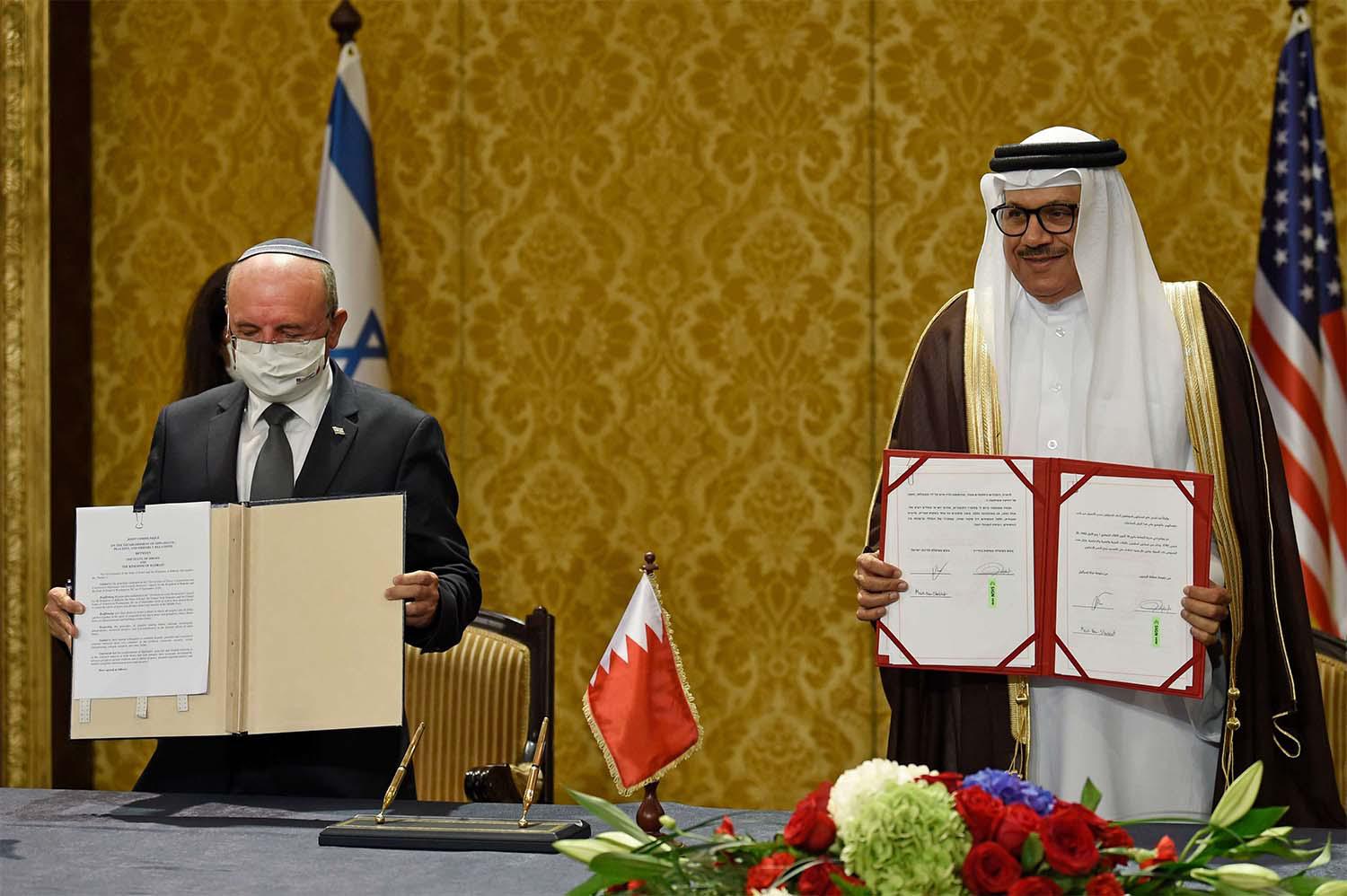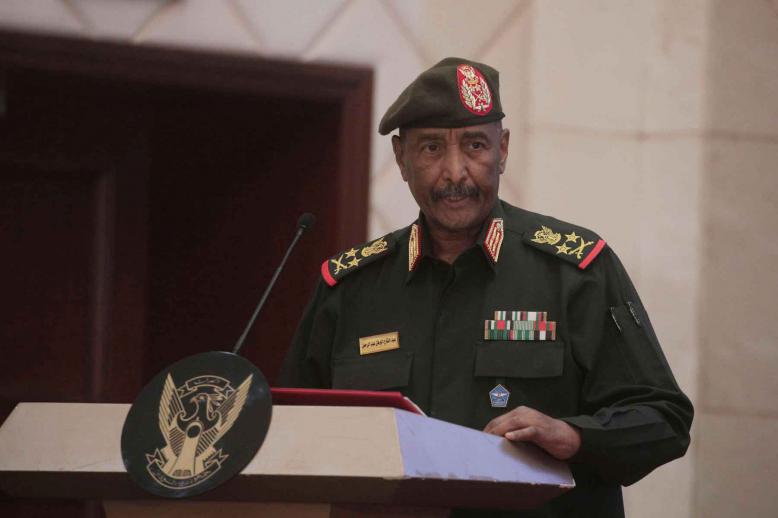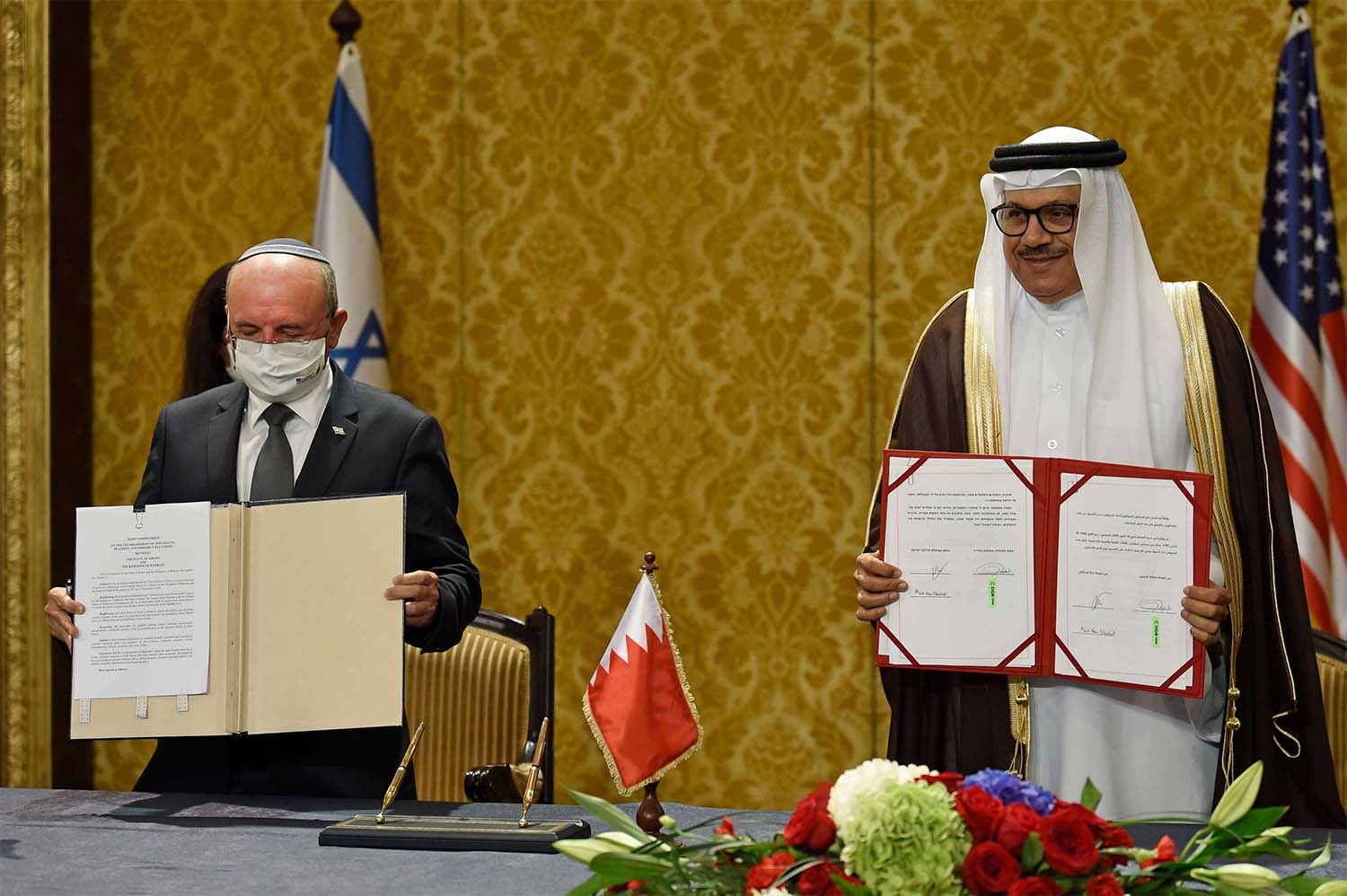Israel, Bahrain agree to establish formal ties
JERUSALEM - Israel and Bahrain on Sunday agreed to establish formal diplomatic relations, making the small Gulf country the fourth Arab state to normalize ties with Israel.
The US-brokered agreement capped a one-day visit by a high-level delegation of American and Israeli officials to Bahrain.
Bahrain joined the United Arab Emirates at a festive White House ceremony last month marking the “Abraham Accords,” a pair of US-brokered diplomatic pacts with Israel. While the UAE’s deal with Israel formally established ties, the agreement with Bahrain was less detailed and included a mutual pledge to follow suit.
Sunday’s visit appeared to complete that task, clearing the way for the countries to open embassies and exchange ambassadors in the coming months.
“It was indeed an historic visit, to start opening relations between both countries, to have fruitful bilateral relations in both fields,” said Bahrain's foreign minister, Abdullatif al-Zayani, at the signing ceremony.
US Treasury Secretary Steven Mnuchin and Israeli Prime Minister Benjamin Netanyahu’s national security adviser, Meir Ben-Shabbat, led the delegations.
“Today we made the first formal step in bringing closer ties between the countries,” Ben-Shabbat said. "We were accepted with open arms, with warmth and cordiality.”
“This is an important step in stability in the region, in bring prosperity to all the people in the region and in the countries,” added Mnuchin.
Israel’s agreements with the UAE and Bahrain have marked diplomatic victories for the Trump administration and for Netanyahu.
But they have come under heavy criticism from the Palestinians, who have long counted on a unified Arab stance that recognition of Israel should come only after the Palestinians achieve an independent state of their own. The agreements reflect a shifting Middle East, in which shared concerns about Iran and business opportunities have overshadowed the Palestinian issue.
The Palestinians have severed ties with the White House, accusing it of being unfairly biased toward Israel. US officials have in turn cultivated ties between Israel and Arab states, hoping to increase pressure on the Palestinians to reduce past demands in peace talks.
Bahraini civil society groups and opposition figures, already targeted in a yearslong crackdown on dissent, have also spoken out against normalization with Israel.
Israel’s commercial El Al flight 973 — a nod to the international dialing code for Bahrain — flew through Saudi Arabia’s airspace en route to Manama. Although Saudi Arabia has not normalized ties with Israel, it has signaled tacit support for the moves by its Gulf neighbors, which reflect shared concerns about Iran.
The El Al flight landed at Bahrain International Airport on Sunday afternoon. The kingdom’s state-owned television channels did not carry the arrival live. Bahrain’s state-run news agency later published pictures of the arrival, acknowledging the Israeli officials were there to sign documents “establishing diplomatic relations between the kingdom of Bahrain and the state of Israel, in addition to a number of memoranda of understanding in the areas of joint cooperation.”
In a rare recording, the Islamic State group condemned the move toward normalization with Israel, identifying the UAE and Bahrain and also accusing Saudi Arabia of showing “subservience to crusaders” and Jews.
“Here now, the Jews have come to you and are walking freely in your streets and countries, feeling safe and secure with approval from your tyrants and supported by your edicts,” said the group's spokesman, Abu Hamza al-Qurayshi. He also called for attacks to undermine the Saudi economy.
It was the first recording by al-Qurayshi in about a year.
Egypt and Jordan are the only other two Arab states to sign diplomatic treaties with Israel, in 1979 and 1994, respectively. Other Arab countries could follow suit, with analysts and insiders pointing to Sudan, Oman and Morocco as possibilities.
The trip to Bahrain on Sunday also came as UN arms embargoes on Iran expired despite American objections. Bahrain, like several other Gulf Arab nations, views Iran as the most serious threat to its security in the Persian Gulf.
The Israeli delegation was slated to fly back to Tel Aviv later Sunday, while the Americans will head to the UAE before flying to Israel on Tuesday.






